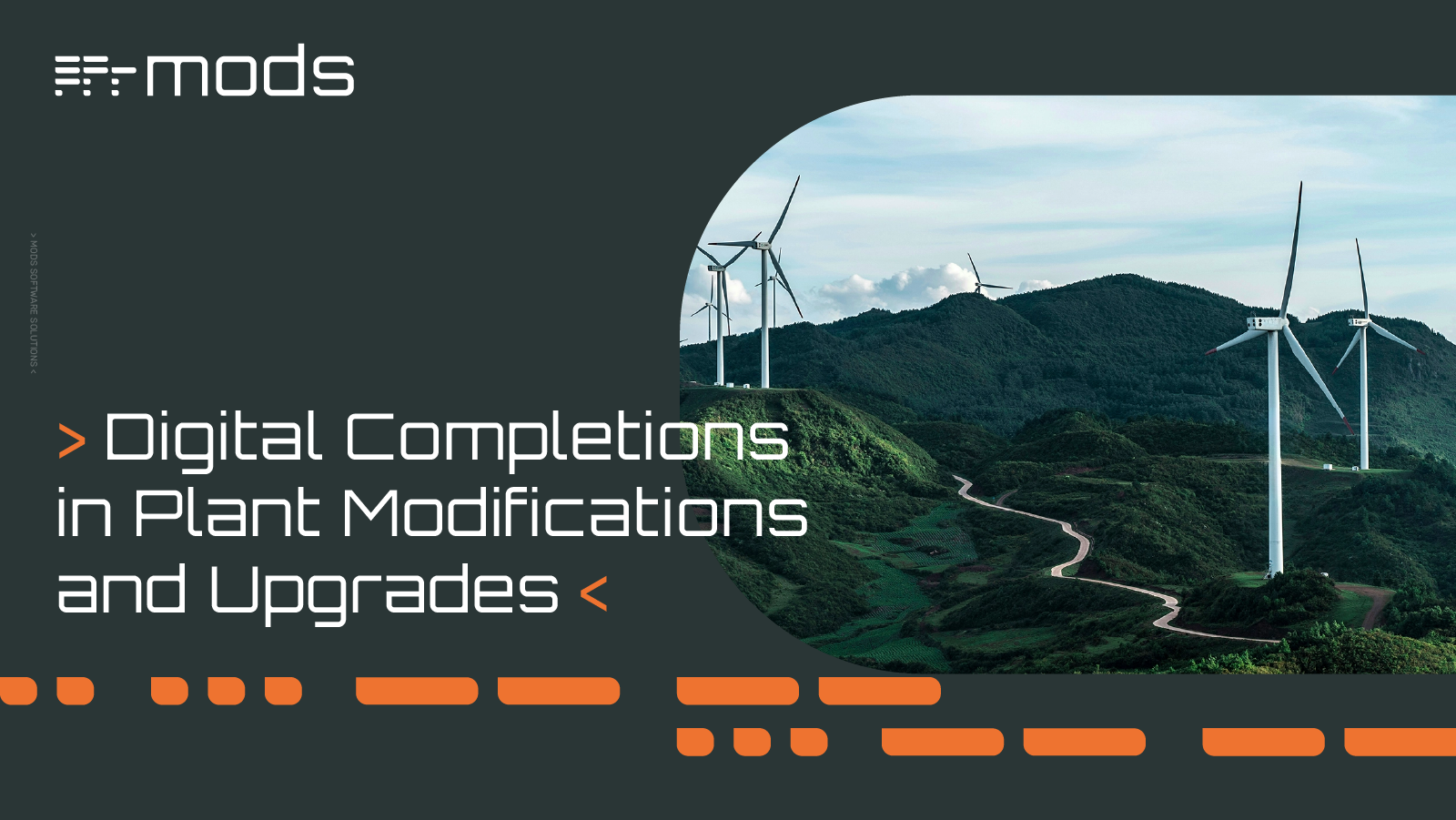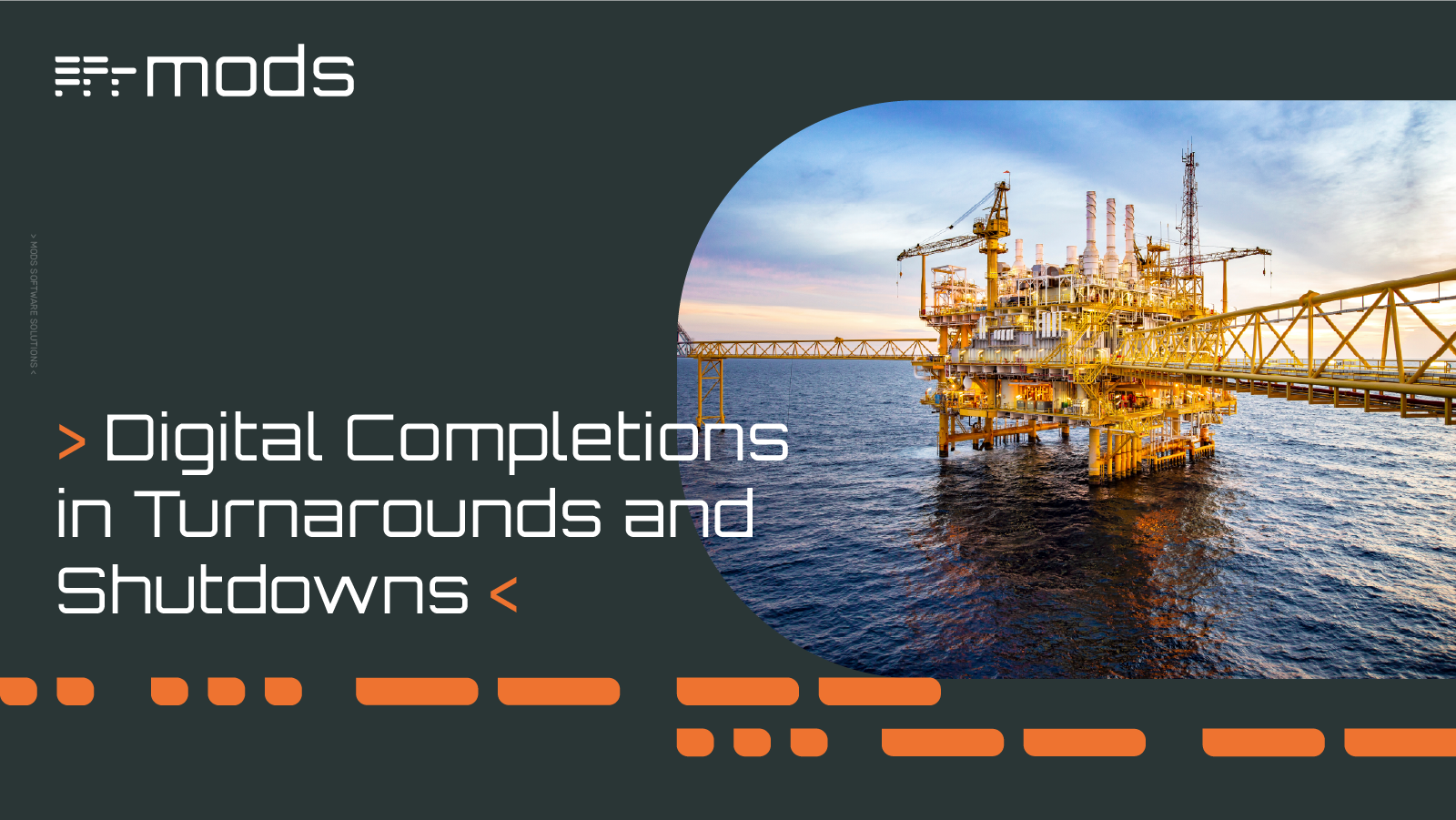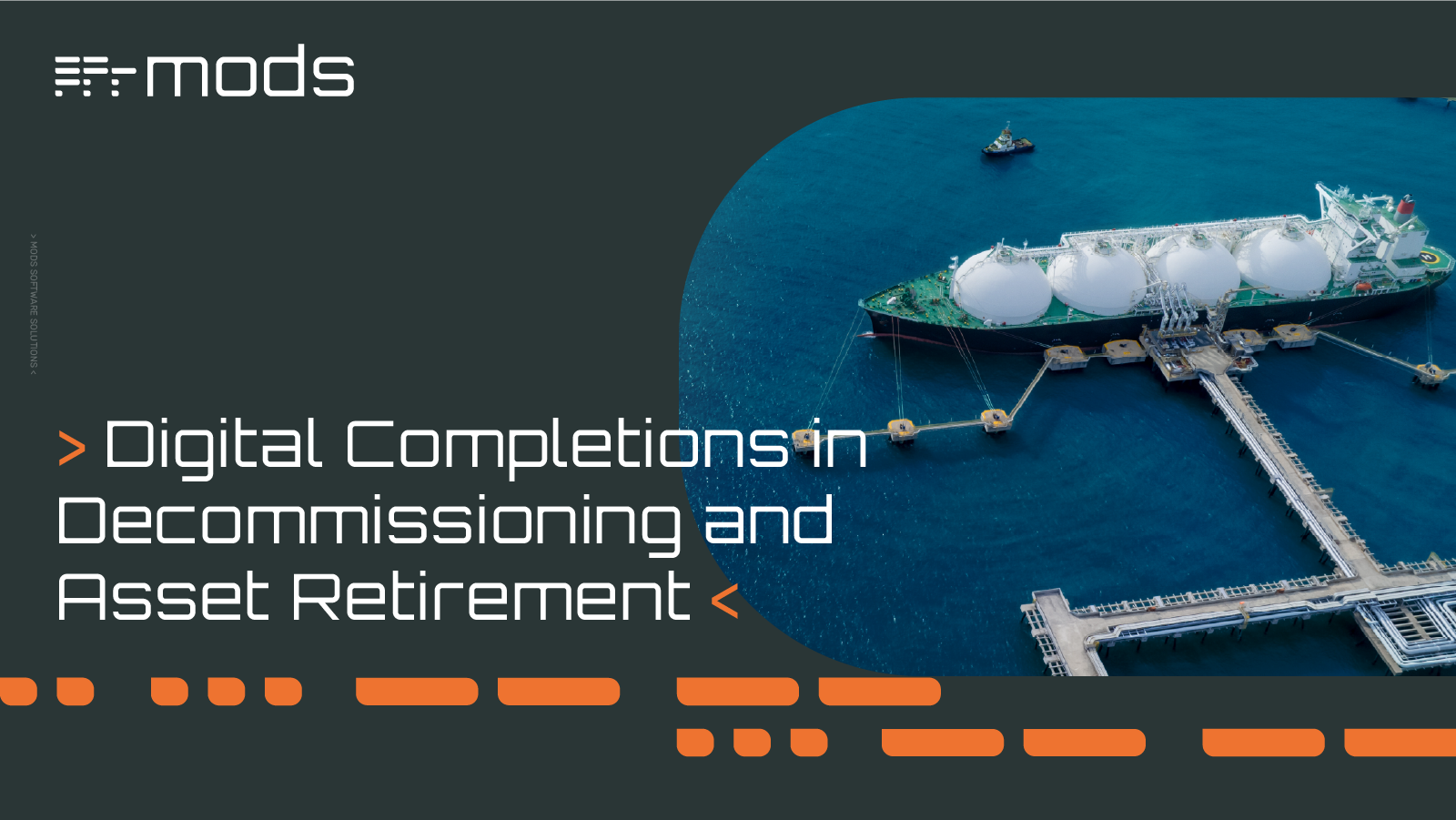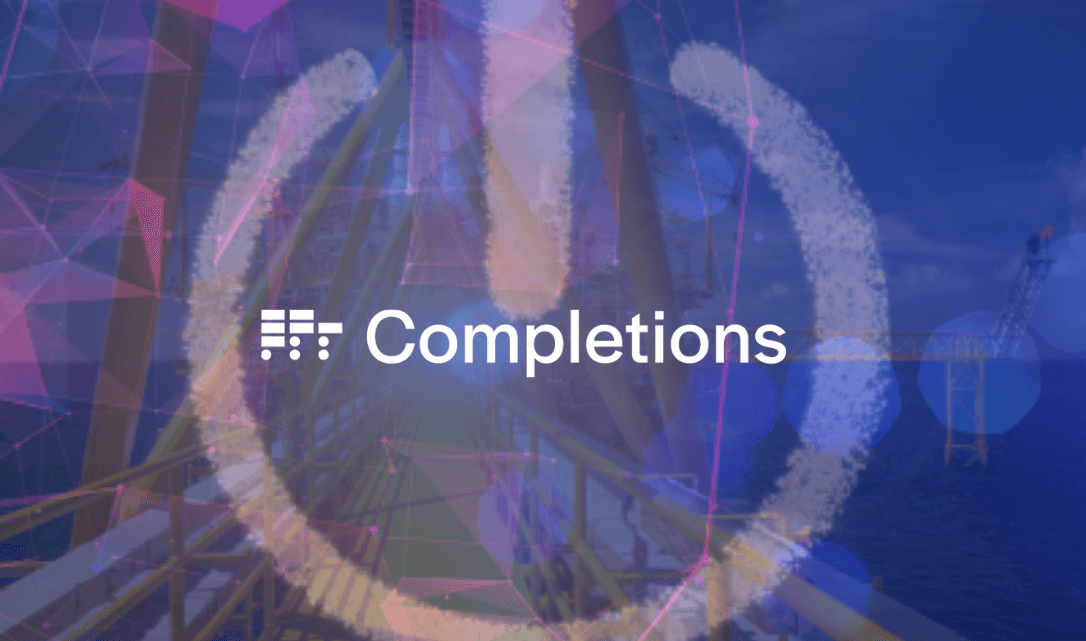Digital Completions in Plant Modifications and Upgrades
Unlike greenfield or any new build construction projects, plant modifications and upgrades present a unique set of challenges. Work is carried out...
4 min read
![]() MODS Marketing
:
Dec 21, 2020 10:48:16 AM
MODS Marketing
:
Dec 21, 2020 10:48:16 AM

Digital Transformation (DX) is a term used to describe the evolution or change to a business and its practices using digital technology. It can be applied to all areas of work, for example, from converting manual processes using computerized scanners, to replacing old technology with the latest available.
We discuss everything you need to know about DX in the energy sector here.
Conversion to digitally monitored production and processes can often automate many more areas of the workflow and its associated documents. This allows companies to have a ‘live’ and accurate picture of their business every minute of every day, without missing or waiting for any of the key data. This information greatly supports cost control, production times and safety parameters, to name but a few.
The digital revolution is definitely here to stay, and there is no denying that digital transformation is a vital investment for companies wishing to stay viable.
‘Verdantix’, an independent technology research organisation, published a survey on ‘Operational Excellence in the energy sector’. The majority of their respondents, 96% in fact, stated that the availability of new technology is a significant driver in tech’ spending. More than half of those surveyed believed that digital technology is valuable to overall organizational success.
The year 2020 will be remembered for many reasons but the most memorable, undoubtedly, will be the global pandemic. Home-based offices, remote working and minimal staffing has forced companies to rethink their technology spending and make digital transformation their key priority.
Despite this clear shift towards digitalization, some businesses are still slow to embrace their DX journey. This hesitation usually starts at the ‘embryonic’ stage, often due to a fear of investing in the wrong technology and the resultant consequence being, an organisation that is unprepared for the DX wave.
Digital transformation in the Oil and Gas industry has been embraced to an extent but as those who have already invested in DX know, technology is an ever developing and changing tool, that requires a priority investment to ensure competitiveness in today’s tough market. Spending large sums of money on anything new is understandably risky but there are several key drivers for success when contemplating digital transformation.
By looking at these fundamental factors in more detail, the decision on which technology would suit your organisation will become a little clearer.
Data is generated in almost every aspect of construction, production, maintenance and management of a working facility on or offshore. Just thinking about the enormity of it all could be ‘mind-blowing’, nevertheless, collecting or capturing this information is absolutely necessary for functionality within any organisation.
The importance of putting your data to work cannot be stressed enough. Industry leaders can undoubtedly appreciate the return in investment from their decision to digitally transform their working environment. Harnessing the collected data drives the actionable insights that, in turn, can deliver instant and accurate analytics assisting in asset maintenance and process improvements.
Storing and accessing this massive amount of valuable data is the next ‘headache’ businesses face. The ‘Industrial Internet of Things’ (IIoT), also known as ‘Industry 4.0’ has revolutionized the workplace by installing ‘smart’ machines, actuators and super sensors that detect the smallest of fluctuations in performance. These insights can empower productivity by giving management and operation teams fast and accurate figures on performance, maintenance requirements and safety. Valuable data such as this also needs to be accessed quickly and stored securely. Exporting this information to the Cloud or Edge computing network will ensure speed and scalability no matter the location and ultimately driving decision making power.
Digital transformation is about using technology that is the best fit for your organizational goals – AND one that finds acceptance at all levels, especially in core user groups. ‘User-friendly’ is not a throw-away term, it is a serious issue for departmental heads as they instate new technology and interfaces. Digital investments need to address the real challenges based on ground level input. Translating or understanding these frontline issues and designing a system that is welcomed by the workforce is the key to maximizing gains from technology and ultimately justifying the budgetary spend.
It is easy to get carried away by much touted industry ‘norms’, however they may not be the right fit for your business. A tailored digital system will empower your workforce with better process management, for example, through OCR (Optical Character Recognition) based, paperless solutions. Digital transformation is an on-going process and awareness of emerging and disruptive technologies is important as they may help catapult your business to a more productive and profitable future, more value-added from digitalization.
Industrial professionals in charge of managing complex project lifecycles are often forced to use different siloed software to manage project stages. Departments such as engineering, procurement, manufacturing & fabrication, planning, cost control, construction, installation, and commissioning all have different wants and needs from their systems and traditionally have unique and isolated software to manage them.
The burden of interacting with disparate software systems, in addition to handling core operations, reduces efficiency and runs the risk of increased and costly operational errors.
Evaluating software suites that unite these phases as an integrated process is the simplest solution for cross-population of information to systems. Pulling data on real-time activities directly between the modules gives complete control and visibility, importantly enabling control over time, resources, cost and risk.
In a high investment industry like Oil & Gas, Digital Transformation holds a greater importance to executives and stakeholders than ever before. The benefits of employing technology to gather information in superior detail and speed, anytime, anywhere is a ‘game-changer’ for competing companies.
The ability to reduce risk, cost and time is, again, priceless however, the correct selection of digital system provider is central to this success. Preference should be given to technology specialists with the knowledge and experience of the industry, ability to customize integrated systems throughout the organisation, all with a collaborative approach to design and data sharing across departments, documentation automation and project phases.
The Digital Transformation journey is one made much easier with a strategic tech’ partner willing to listen to your workforce, who is able to maximise data potential and ease of use, all while helping reduce risk and staying current with latest tech’ developments. Professional digital services like these exist to help businesses digitally transform and ensure a future path that avoids potential pitfalls and help build one paved with success.
Find out how we support Owner Operators and EPC's in Brownfield projects with MODS Connect.
Resource: Verdantix, Operational Excellence in the energy sector, Dec 21 2020

Unlike greenfield or any new build construction projects, plant modifications and upgrades present a unique set of challenges. Work is carried out...

Turnarounds and shutdowns are among the most critical—and stressful—phases in the management and operation of industrial assets. These planned...

Offshore decommissioning and asset retirement present significant logistical, regulatory, safety, fiscal and reputational challenges. The process of...

For those involved in the Completions phase of an Energy facility, a stress-free, effort-less handover is always top of the wish list. The...

The Global Pandemic has brought with it, death, devastating life changes and a myriad of workplace changes. The Energy industry did not escape the...

The five biggest oil majors by market capitalization stated an average of 23% in terms of reductions on capital outlined in financials published...